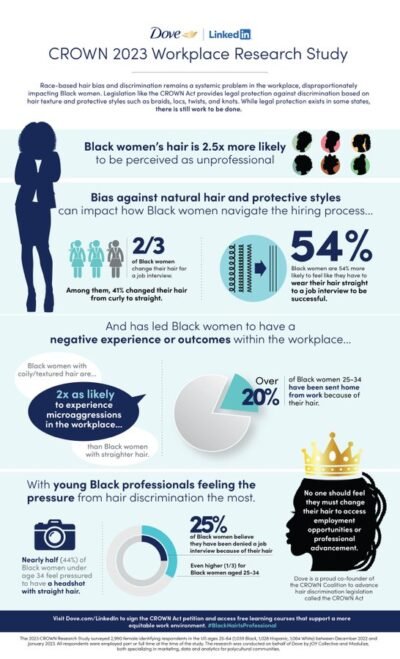It is never about who wears what hairstyle. Or who wore it first. That's about choice and style.The question is who is making change so that every
It is never about who wears what hairstyle. Or who wore it first. That’s about choice and style.
The question is who is making change so that everyone can wear the hair they were born with. That is about health, wellness, and equity.-Tonya GJ Prince
Afro textured hair is outstanding in its uniqueness. It attracts a remarkable amount of attention—some of it affirming and celebratory, but far too much of it critical, biased, or outright discriminatory. From braids to locs to twists, Black hairstyles are admired on fashion runways, yet often questioned or penalized in professional offices. In the thick of this contradiction, people still have to make a living.
And yet, bias and discrimination around hair texture and style remain persistent barriers to fair treatment, career advancement, and even basic dignity in the workplace.

📊 Quick Facts on Black Hair Discrimination
Sent home for hair: In a 2019 Dove-commissioned study, Black women were 1.5× more likely than others to be sent home from work because of their hair; 80% reported feeling pressure to change their hairstyle to fit conservative norms. Legal Defense Fund
Seen as “unprofessional”: Black women’s textured hair was found to be 2.5× more likely to be perceived as unprofessional; 66% said they changed their hair for job interviews, and 41% transformed curly hair into straight. Cosmetics BusinessCanadian HR Reporter
Interview pressure: In another study, 54% of Black women felt required to straighten their hair to succeed in a job interview. Canadian HR ReporterConsumer Notice, LLC
Legal progress — CROWN Act: As of early 2025, 27 states plus dozens of cities have enacted CROWN laws banning race-based hair discrimination in workplaces and schools. Watson ColemanGovDocs
Still widespread bias: Despite these laws, the perception of professionalism continues to penalize Black textured natural hair—revealing how pervasive and normalized bias remains. WikipediaHarvard Business Review
The research is clear: Black hair discrimination is not about fashion—it’s about fairness. It decides who gets hired, who gets promoted, and who is treated with dignity in professional spaces. While textured hair is a natural expression of identity and culture, bias continues to frame it as “unprofessional.” That must change.
Passing and enforcing protections like the CROWN Act, updating workplace policies, and building true cultural awareness are not optional steps—they are necessary commitments.
It is never about who wears what hairstyle. Or who wore it first. That’s about choice and style.
Because making a living should never require changing who you are.